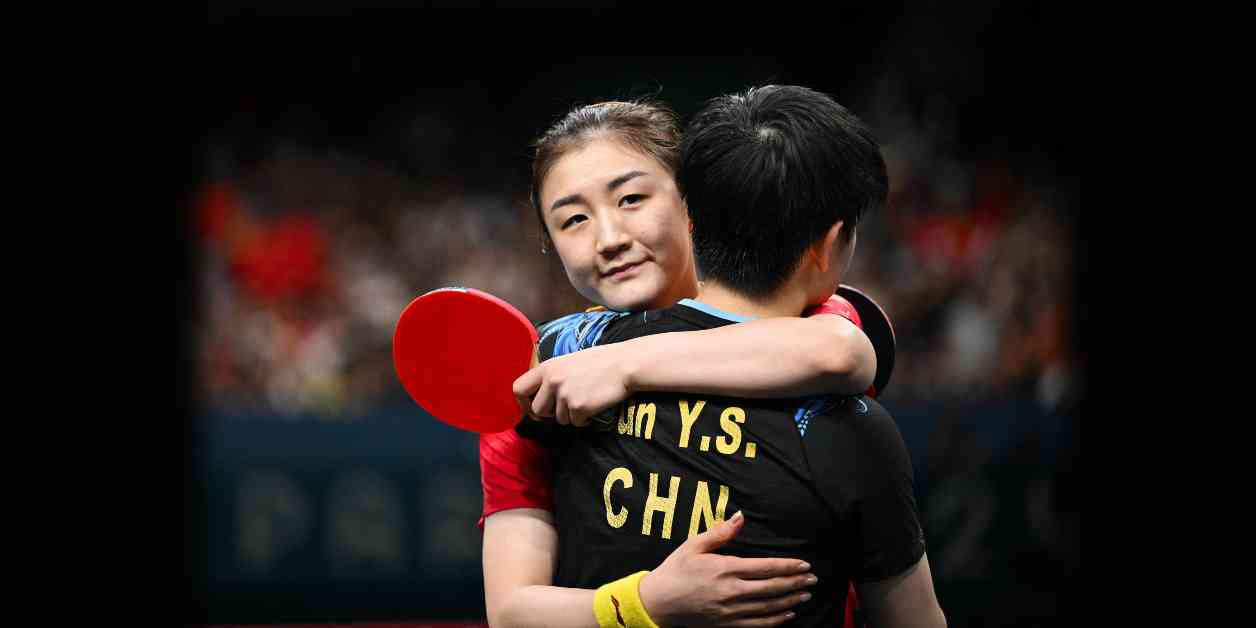The online world has become a breeding ground for harassment and abuse, especially towards women. The recent Paris Olympics served as a stark reminder of how even high-profile athletes like American gymnast Jordan Chiles and Romanian Ana Bărbosu were hounded off social media due to toxicity surrounding judging controversies. China’s own Olympic team faced similar attacks, with hurdler Wu Yanni and table tennis legend Chen Meng being targeted for various reasons, from appearance-based criticism to fan rivalry.
Addressing the issue of online harassment poses significant challenges in China, as evidenced by the struggles faced by regulators and platforms in cracking down on cyberbullying. Despite the Chinese government’s efforts to introduce new guidelines and clarify legal liabilities for online violence perpetrators, the abuse directed at female athletes like Wu and Chen continues to persist. The difficulty in keeping up with online trolls is further exacerbated by the disproportionate targeting of women, both in China and globally.
According to The Economist Intelligence Unit, 38% of women report experiencing online violence directed at themselves, highlighting the pervasive nature of the issue. Women in China, like their counterparts worldwide, are more likely to be victimized by online violence, leading to significant mental health implications. Appearance-based trolling and shaming are particularly common forms of abuse aimed at women, with attacks ranging from criticism of physical appearance to questioning of professional conduct.
The recent attacks on hurdler Wu Yanni exemplify the intersection of gender and online harassment, as she was shamed for failing to conform to conventional beauty standards expected of female athletes in China. Similarly, triathlete Feng Jingshuang faced negative comments focused on her appearance, highlighting the prevalence of appearance-based violence in online spaces. Tragically, even women reeling from personal tragedies are not spared from online trolling, as seen in the case of a grieving mother who faced harsh criticism for her perceived demeanor.
The gender-based violence directed at women online extends beyond appearance-based attacks to include victim-blaming and professional defamation. When women speak out against sexual harassment or assault, they are often labeled as attention-seeking or untrustworthy, further complicating their experiences. This online treatment not only adds to the trauma experienced by victims but also deters others from reporting similar crimes, perpetuating a culture of silence and impunity.
The underlying sexism and misogyny that fuel online attacks against women are most evident when women enter traditionally male-dominated spaces. Women who excel in fields considered “hardcore” are often shamed and ridiculed, as seen in the case of mathematics student Kate Zhu Wenqi, who was labeled a “mathematics socialite” due to her perceived youth and attractiveness. Efforts by legal institutions to address online violence are crucial, but regulations and legislation alone are insufficient to combat this pervasive issue.
Social media platforms play a significant role in enabling and amplifying gender-based violence against women, with anonymity and ease of access contributing to the proliferation of harmful content. Despite the real identity registration system in place on Chinese digital platforms, users still enjoy a level of anonymity that allows them to engage in abusive behavior without fear of consequences. The prioritization of controversial and sensational content by social media platforms further exacerbates the problem, perpetuating a cycle of online violence.
Victims of online violence often face hurdles in seeking justice, as the legal procedures for defamation or privacy violation lawsuits can be lengthy and complex. However, there is reason for optimism, as more young Chinese women are speaking out against misogynistic attacks online and taking legal action against offenders. By encouraging victims to report and address online gender-based violence, we can work towards creating a safer and more inclusive online environment for all individuals.
In conclusion, the issue of online harassment of women in China is a complex and multifaceted problem that requires a comprehensive and holistic approach to address. From appearance-based trolling to victim-blaming and professional defamation, women face a myriad of challenges in online spaces. By amplifying the voices of victims, holding perpetrators accountable, and advocating for stricter regulations on social media platforms, we can work towards creating a safer and more equitable online environment for all individuals.

















